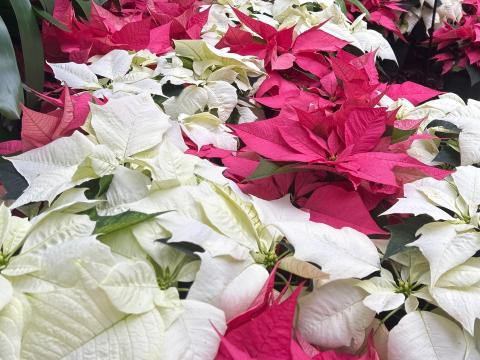
Acorns for Nichols Arboretum
In late August, a fierce storm took its toll on Nichols Arboretum, and over a hundred mature trees were brought down from high winds and rain. Yet, within this chaos, we have found an opportunity for renewal, staying true to our commitment to promote environmental and ecological sustainability.
Well before the storm, oak tree management had taken center stage in our efforts to safeguard the Arboretum's ecological well-being. Studies conducted within the space had revealed a concerning absence of oak tree seedlings. Oaks are not just any tree; they are keystone species, vital for maintaining the balance of our local ecosystems. They support an array of plant-eating insects, which in turn are the primary food source for songbirds. In addition, acorns are a valuable food source for a variety of animals, from ducks and turkeys to deer. In essence, oak trees are an important foundation of our local food chain.
Oak saplings encounter numerous challenges in their efforts to establish themselves in Nichols Arboretum. The resident deer population poses a continued threat, as they voraciously consume young oak seedlings. Additionally, the Arboretum's increasing canopy density over the years has led to more shaded areas, favoring the growth of shade-tolerant maple trees, which then overshadow young oaks.
This is where the storm presented us with a unique opportunity. While the damage was indeed destructive, the downed trees have opened up the forest canopy, providing understory trees with the light and space they need to fill the gaps left by the fallen trees. This damage has become a turning point in our efforts to restore the oaks in Nichols Arboretum.
Trees fall regularly in forests, and without management, these gaps can be filled with invasive non-native species. To ensure that oak trees thrive in these gaps, we are focused on controlling invasive species and removing non-native species from these areas. We have also embarked on a plan to plant hundreds of oak seedlings in the newly created gaps and protect them from deer using tree cages.
Currently, we have hundreds of acorns, collected from the very heart of the Arboretum, resting patiently in the fridge, biding their time to play a crucial role in our ongoing restoration efforts. As we prepare to kickstart this remarkable restoration, we'll begin by soaking these acorns, ensuring they are primed for growth, and selecting the most promising acorns that signify the potential for strong and healthy oaks. These acorns, collected from the very soil they will one day call home, represent the future of our Arboretum's thriving ecosystem.
MBGNA’s Director, Anthony Kolenic, shares: “Despite the storm's devastation, this is also a remarkable opportunity for rebirth and rejuvenation for the lands we steward, honoring our mission to be a transformative force for social and ecological resilience. The challenges we face, while significant, only fuel our determination to preserve the natural balance of Nichols Arboretum. We are committed to the preservation of our environment, as well as the Arb’s long-term health and impact.”
We invite you to join us on this journey of renewal and growth. Gifts of any size will help us restore the Arb through our clean-up efforts, trail restoration, the protection of understory seedlings, as well as the planting of the next generation of trees. Together, we can make a difference and ensure the legacy of Nichols Arboretum for generations to come. Make your gift online here: myumi.ch/73N2y.

